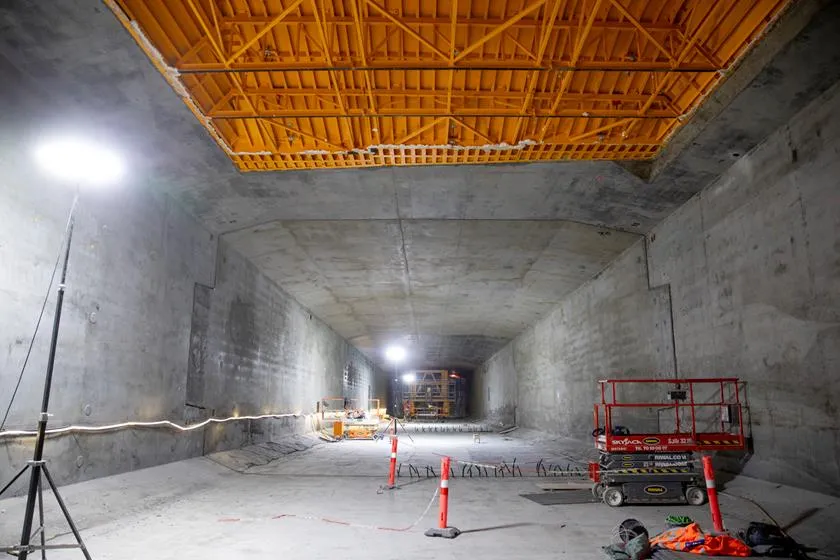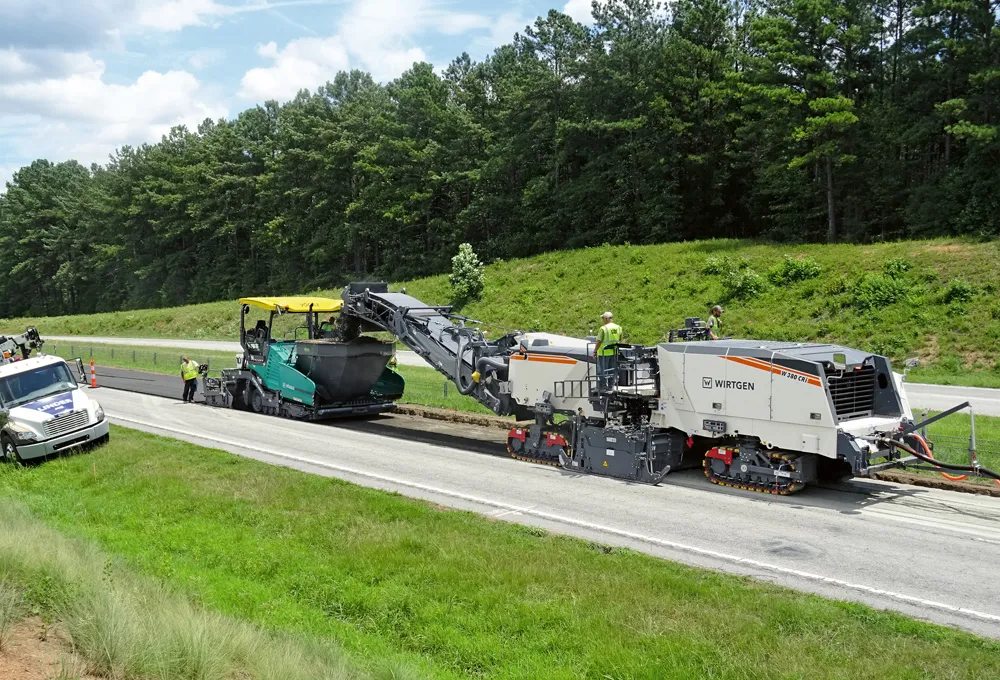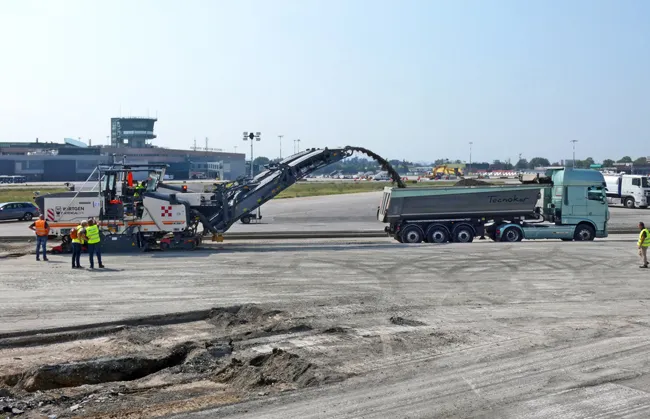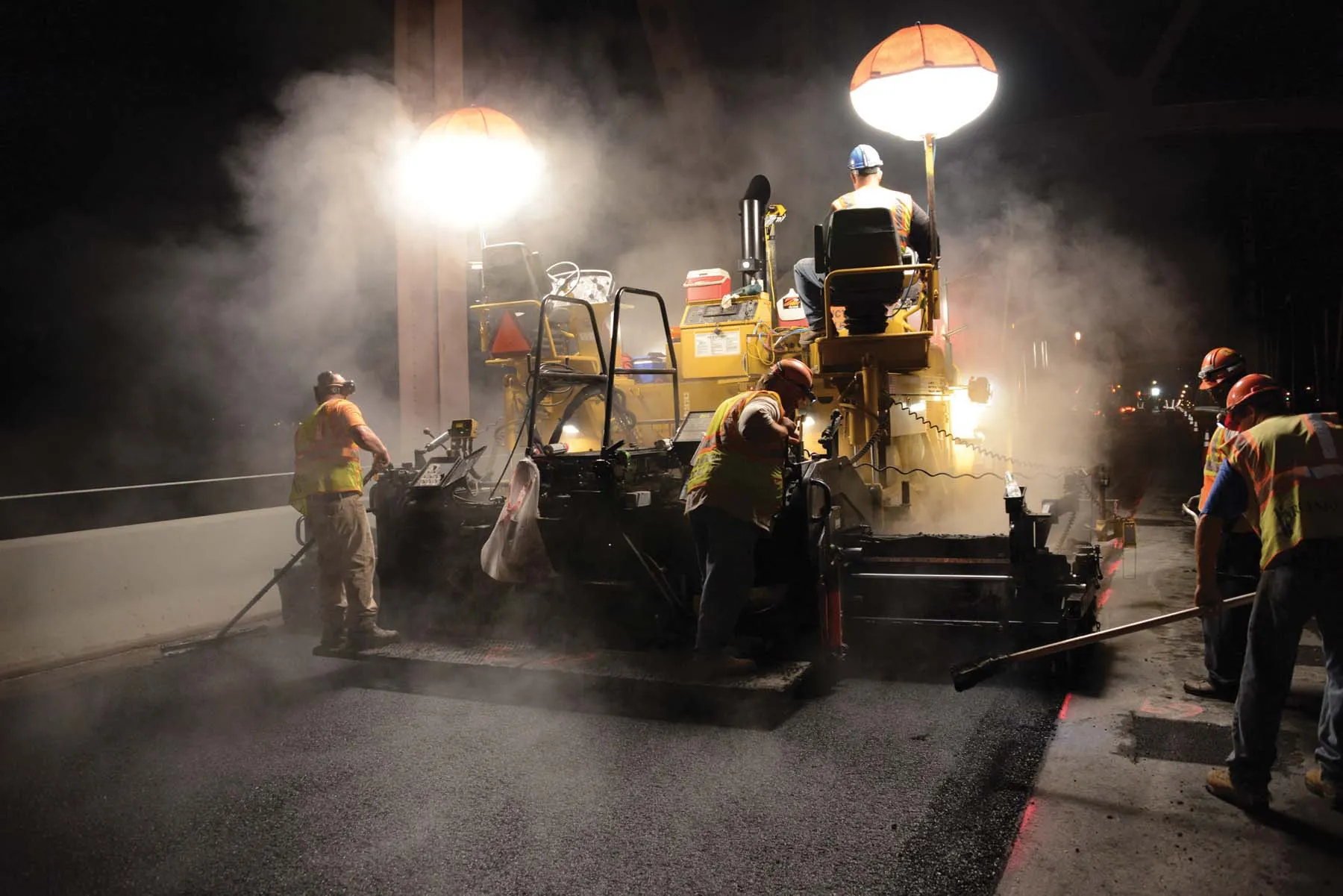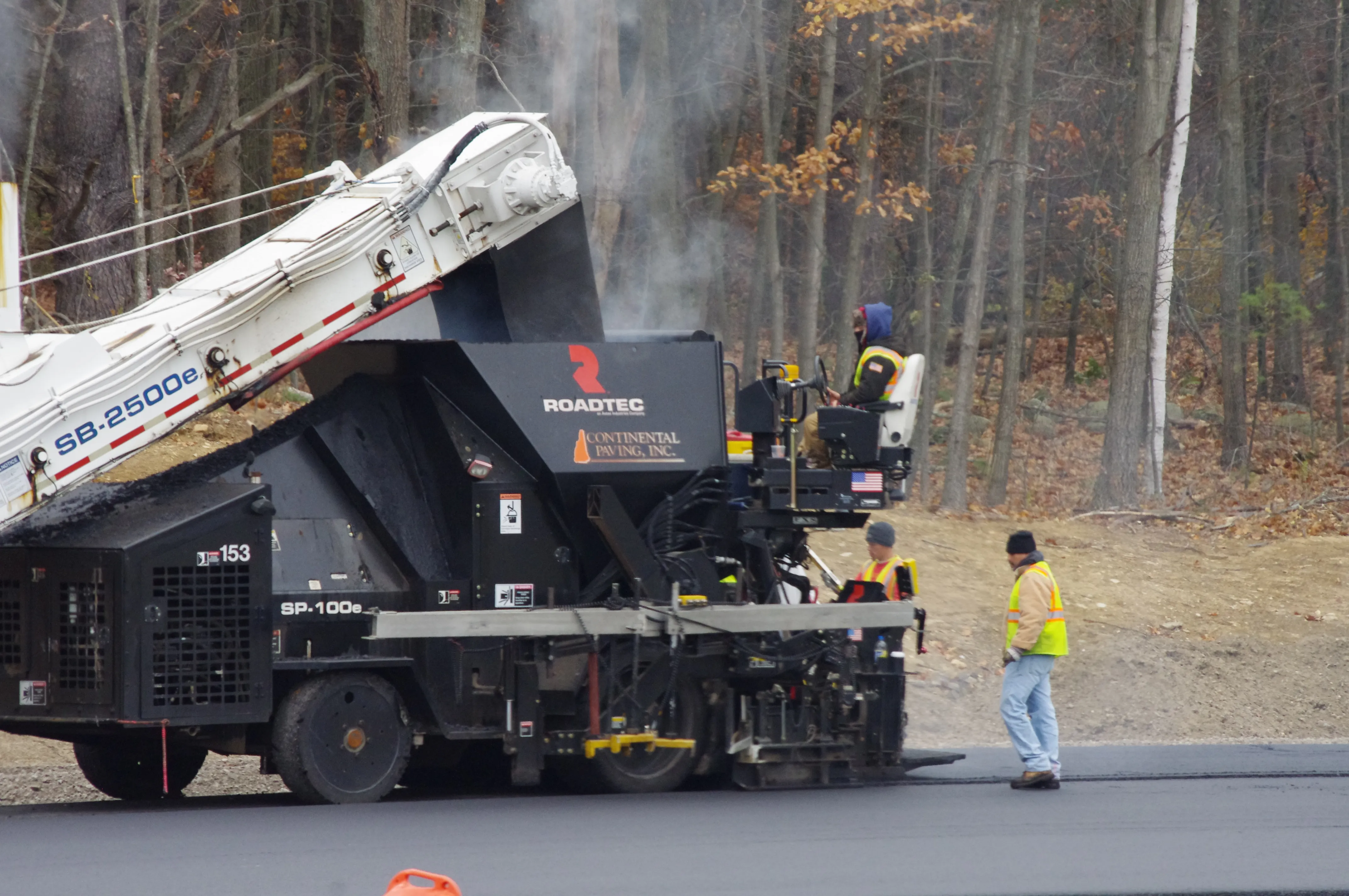
The widening work is being carried out as part of an upgrade for a 32km stretch of I-93, which was started eight years ago. The work is being carried out for the New Hampshire Department of Transportation (NHDOT) on a section of the highway between Exits 1 and 5 from the Massachusetts Stateline to Manchester, NH.
According to NHDOT, the project involves widening I-93 from two lanes in each direction to four lanes in each direction. This will be from Salem, NH at the Massachusetts/New Hampshire state line heading northerly through Salem, Windham, Derry and Londonderry, and into Manchester, ending at the I-93/I-293 interchange. The US$750 million project was started in 2008 and is due for completion at the end of 2019. The first phases focused on clearing the land adjacent to the interstate, as well as building bridges, on- and off-ramps and park-and-ride facilities.
"We've joined the Rebuilding I-93 project at its final phase where we'll be completing the asphalt paving on the remaining 12miles (19km) of the project," said Amy Charbonneau, Continental Paving, Londonderry, New Hampshire. "We are the subcontractor on four separate contracts with three general contractors. The GCs are Audley Construction out of Bow, NH; Weaver Brothers Construction, based in Bow, NH; and Coleman Construction from North
The first two contracts are for Audley Construction and are located on the southern section of the project. On these jobs, Continental Paving's contract includes some reclaiming, milling, onsite crushing, and the asphalt paving. The first Audley contract calls for approximately 126,300tonnes of asphalt. The total contract for Audley as a GC is valued at $49 million with a completion date of October 2019.
"We have used our
The Roadtec RP-100e Stealth Paver is a low-maintenance gravity-fed paver specifically for operation with a material transfer vehicle. Continental Paving uses a Roadtec SB-2500e Shuttle Buggy to pair up with its Stealth Paver.
Charbonneau believes the gravity-fed paver offers benefits, "We do not track fuel costs/paver, but we see that the Stealth is saving on fuel and the paver is going to save us approximately 50% in wear part replacement cost on a yearly basis, due to the reduced number of moving parts."
The second contract with Audley Construction has a $62 million value and requires placement of 104,600tonnes of asphalt and a completion date of September 2020. As with all the contracts, Continental is paving from the gravel up. "Our paving calls for the placement of three lifts of HMA to reach the finished surface," stated Charbonneau. "There are different mix combinations in different sections, to help the state test paved surface longevity. "
With its fast paving rate, Continental was able to achieve a record night with the Roadtec RP-100e Stealth Paver. The machine placed 3,700tonnes of asphalt at 32mm by the morning during an 11-hour shift.
The third contract for the contractor is for Weaver Brothers Construction. On their site, Continental Paving will be milling and paving. The total contract awarded to Weaver Brothers was for $34 million and consists of approximately 79,400tonnes of asphalt with a completion date of August 2019.
The fourth contract for Continental Paving requires milling and paving and the $45.9 million contract calls for approximately 103,730tonnes of asphalt, with a completion date of October 2019. Throughout all four contracts a range of equipment is being used. A Roadtec SX-8e soil stabiliser-reclaimer was tested when the contractor had to reclaim a section of the existing highway, which required cutting depths of 305-457mm.
A half-lane Roadtec RX700e milling machine was used for tie-ins and shoulder slope adjustments for lane shifts. The mill also plays a role when bringing the lanes of traffic back from their shifts and swaps while making the surface ready and smooth for the wearing course. For some sections where removal of existing highway was the goal the company did mill off a majority of the asphalt for use as RAP in new asphalt production.


